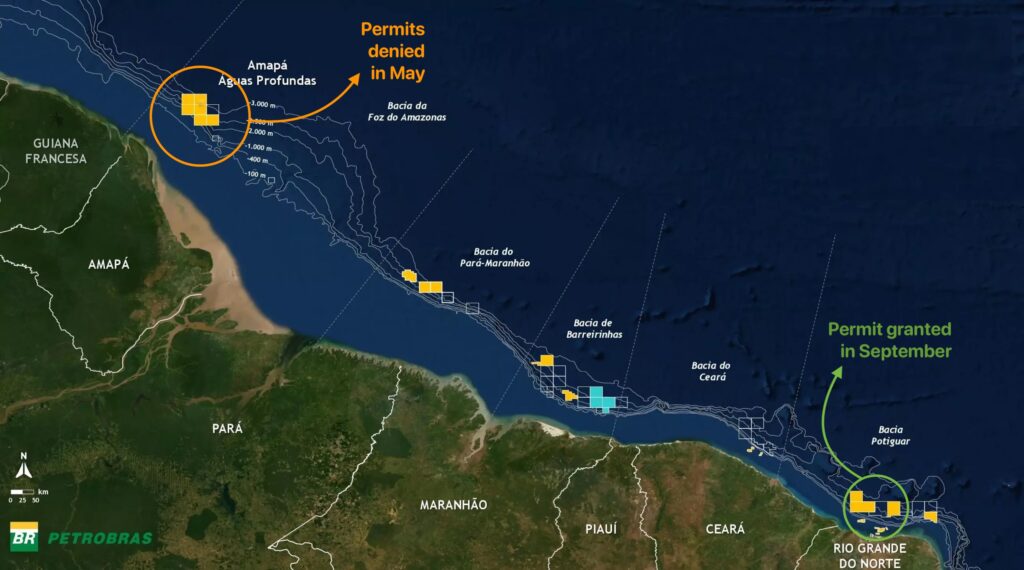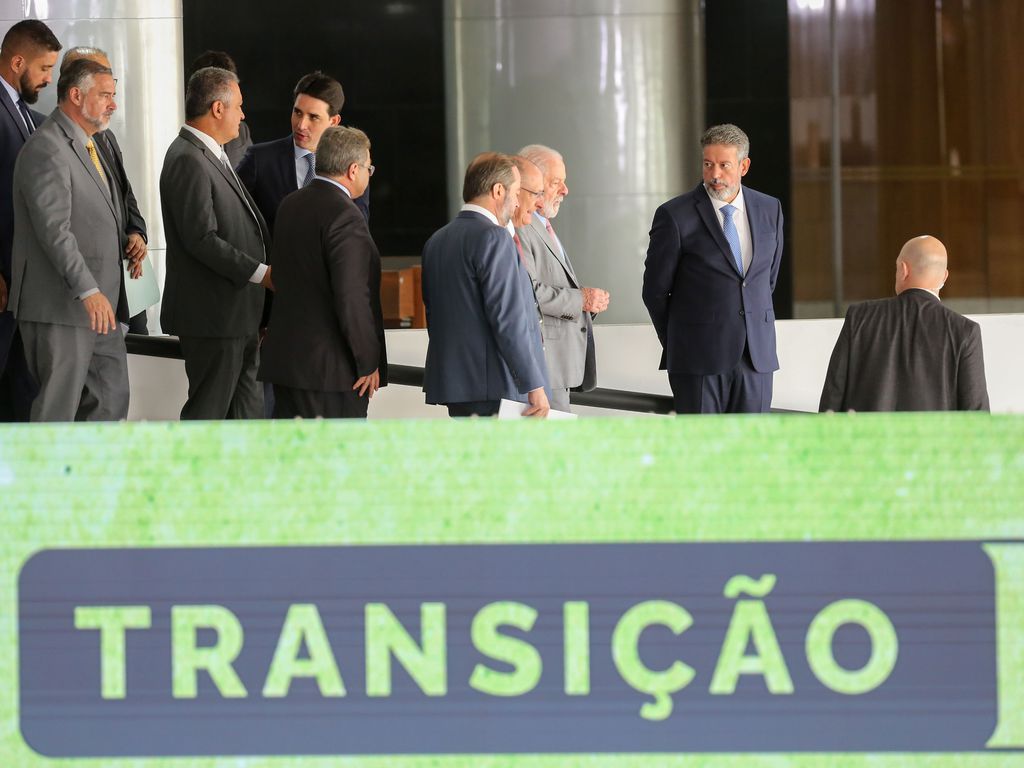The Brazilian Mines and Energy Ministry announced on Friday that Ibama, the country’s environmental protection agency, has granted Petrobras the first permit to explore for oil in a region called the Equatorial Margin — located along the country’s northern and northeastern coasts and considered one of the world’s most promising new oil frontiers.
The permit covers two oil blocks in the Potiguar basin, along the northeastern coast of Brazil (see map below). The government cites “estimated reserves of 2 billion barrels in place.”

Oil in the Equatorial Margin has been one of the most controversial issues within the Luiz Inácio Lula da Silva administration. Many believe that these untapped reserves can bring cash flows into the country, creating jobs and increasing government revenues. Others point out that gushing oil reserves run counter to the bold environmental goals Lula has set for Brazil.
In May, Ibama denied permits for oil exploration in fields near the mouth of the Amazon — and the agency has since come under intense pressure from other branches of government. Even the Solicitor General’s office has entered the fray, trying to find legal ways around the decision.
This push for oil has raised fears that Environment Minister Marina Silva may leave the government. Ms. Silva has compared drilling at the mouth of the Amazon to the environmental destruction caused by the Belo Monte hydroelectric dam, one of the reasons she resigned from Luiz Inácio Lula da Silva’s government in 2008 after her first stint as environment minister.
Mines and Energy Minister Alexandre da Silveira, a staunch defender of oil exploration in the Equatorial Margin, says drilling for fossil fuels is actually in line with Brazil’s environmental goals. “It means more resources to finance the energy transition, and with that, to move even faster in the migration from the fossil fuel matrix to the real energy transition.”
He continued: “We will improve our decarbonization policy through biofuels and invest in clean energy: wind, solar, biomass and biomethane.”
Mr. Silveira also said on Friday that an internal study by Petrobras indicates that the oil fields for which the company has been denied a permit have a potential of 5.6 billion barrels of oil. This represents a possible 37 percent increase in Brazil’s oil reserves, which currently stand at 14.8 billion barrels.


 Search
Search






































